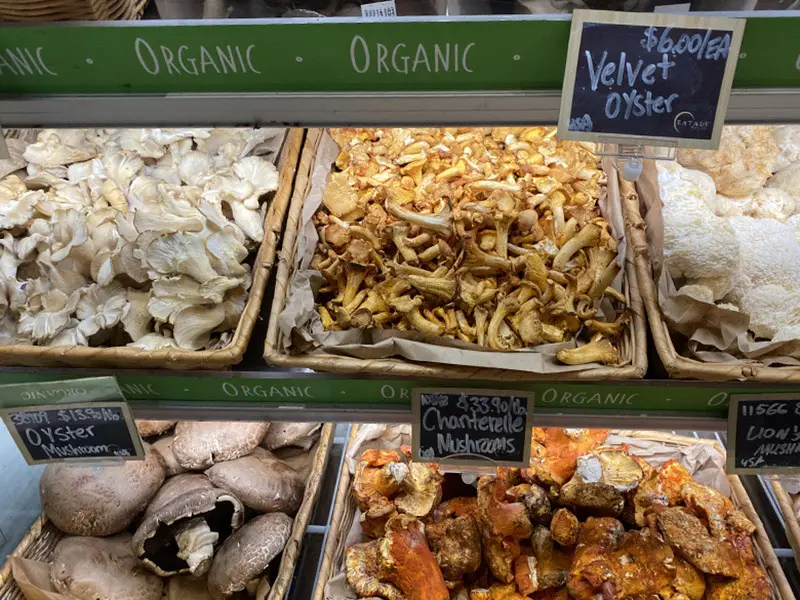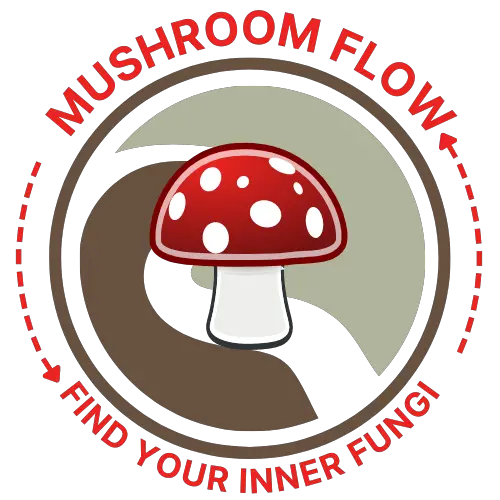When one of my children decided to become vegan, the search began for protein-rich foods that didn’t contain animal products. We quickly discovered mushrooms were a great source of protein.
While mushrooms don’t pack the same protein as meat, they have become a go-to among vegans and vegetarians. White mushrooms are the most protein dense when based on calories. Oyster mushrooms have the most protein by weight.
In addition to protein, mushrooms have essential minerals and vitamins, including selenium, zinc, potassium, magnesium, folate, Vitamin D, and B1, B2, B6, and B12. But let’s take a closer look at the protein in mushrooms and rank the top 10.

Which proteins are in mushrooms?
Mushrooms can provide all 9 essential amino acids for optimal health.
According to FDA guidelines, people should consume 50g of protein daily.
For people who do not consume animal protein, mushrooms represent an excellent source and can help avoid protein deficiency. Although it is not recommended to rely entirely on mushrooms for daily dietary protein.
In addition to being an additional protein source, some studies suggest people feel more satisfied after eating mushrooms vs. meat, including feeling fuller for a longer time.
Now, let’s break down the top 10 mushrooms with the highest protein.
Top 10 mushrooms with the highest protein
There are around 14,000 types of mushrooms in the world. Among them, there are about 300 edible species. Of the top culinary varieties, here’s the top 10 for protein ranking (highest to lowest):
A popular choice for Asian cuisine. As the name implies, these mushrooms resemble the shape of oyster shells. You can use them fried, sauteed, or in soups, and they stand up to grilling. Dried oyster mushrooms like this 1lb bag have up to a year shelf life and are easy to rehydrate when needed. Besides providing 7% DV (percent daily value) protein, oyster mushrooms have niacin, riboflavin, potassium, and Vitamin B5.
- Morel Mushrooms
Morels are earthy and have a spongy texture. Their color ranges from light to dark, with the dark morel’s having more flavor. Their best cooking applications are grilling and sauteeing. One of the most expensive mushrooms, a value option can be dried morels with up to a year shelf life. Morels have 6% DV protein along with an impressive 68% DV of iron, as well as fiber, potassium, and Vitamin D.
- White Button Mushrooms
White button mushrooms are easily found in supermarkets and their claim to fame is versatility. Fresh or reconstituted dried, white buttons have a very subtle taste profile and can fade into the backdrop of a recipe as a supportive ingredient for layering flavors. White buttons have 6% DV protein and niacin, copper, selenium, and are the mushroom with the most riboflavin.
- Enoki Mushrooms
Enoki mushrooms are most frequently in dishes from Japan, China, and Korea. Enoki has thin stalks and tiny white or light brown heads. Hailed for several health benefits including improving digestion and boosting the immune system. The Enoki mushroom provides 5% DV protein, plus niacin, thiamin, folate, potassium, riboflavin, vitamin B5, and fiber.
Recipes from East Asia, specifically Vietnamese dishes, often feature shitake mushrooms. They are unique among mushrooms as they have a higher nutrient content when dried like these on Amazon. Shitake mushrooms have 4% DV protein, vitamin B5, selenium, fiber, and potassium.
- Portobello Mushrooms
Known as the “steak” of mushrooms due to its size, also has a fantastic texture and a flavor that adapts to many dishes. You can barbecue them as you might a steak or stuff them and let them be the main dish. Dried portobella mushrooms are a great pantry staple with up to a year shelf life. Portobello mushrooms have 5% DV protein, selenium, riboflavin, niacin, vitamin B5, and potassium.
- Maitake Mushrooms
Maitake mushrooms can be hard to find, so here’s a link to a pound of dried maitake which have a long shelf life and can easily be rehydrated when ready to add to pizza, soup, pasta, and stir-fries. The maitake mushroom has 4% DV protein, thiamin, riboflavin, niacin, and fiber.
- Porcini Mushrooms
Porcini mushrooms have an intense, meaty aroma and flavor that pairs well with pasta, rice, soups, sauces, and risotto. Dried porcini like these from an Italian small business can also be reconstituted in boiling water to use as bases for sauces and soups. Porcini mushrooms have 4% DV protein and iron.
- Cremini Mushrooms
Cremini mushrooms become more flavorful as they dry and age. Since they are the same type of mushroom as white button, their flavor and texture will be similar. You can use them in soup, risotto, tacos, salads, and sauce making, just to name a few. The cremini mushroom has 4% DV protein, calcium, potassium, phosphorus,
- Chanterelle Mushrooms
Chanterelles look like trumpets and grow in various colors, including orange, yellow, and white. Where many mushrooms are earthy, these have a fruity edge. If you can’t find fresh, dried chanterelle mushrooms can be reconstituted and provide 3% DV protein, fiber, and iron.
Side-by-Side Comparison with Meat & Fish
So how do mushrooms stand up in protein content when compared with meat? Not terribly well, but they are still healthy. 100 grams of meat weigh out as follows:
- Chicken 41%
- Duck: 37%
- Pork Loin: 55%
- Skirt Steak 57%
Duck has five times the amount of protein than mushrooms with the highest protein count. You would have to eat between 50-80 ounces of mushrooms to get a full daily allowance of protein.
Then there’s fish:
- Atlantic Cod (1 filet) 41%
- Pacific Halibut (½ filet) 42%
- Snapper (1 filet) 44%
- Tuna (½ filet) 46%
- Whitefish (1 filet) 38%
There’s Fungus Among us: Most Popular Mushrooms
It’s worth noting that mushrooms high in protein are also among the most popular. The 10 mushrooms ranked in order of popularity are:
- White Button
- Cremini
- Portabello
- Shitake
- Oyster
- Porcini
- Morel
- Enoki
- Chanterelle
- Maitaki
Final thoughts
Mushrooms can provide supplemental protein, however, it’s recommended to consume other sources to get the daily protein requirement. Whatever your diet goals, eating mushrooms can be a great additional source of protein while providing a range of other health benefits!
